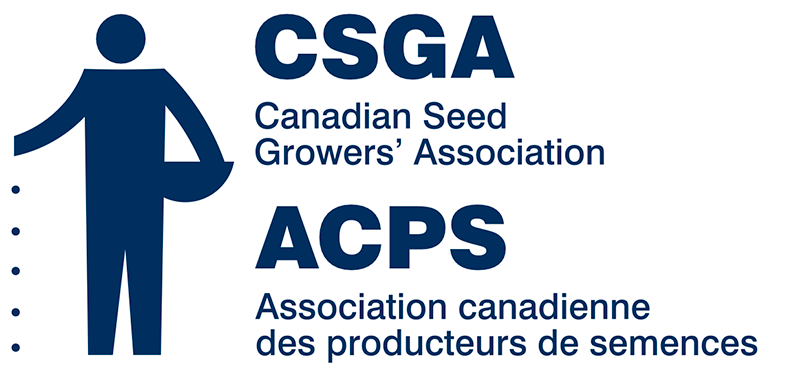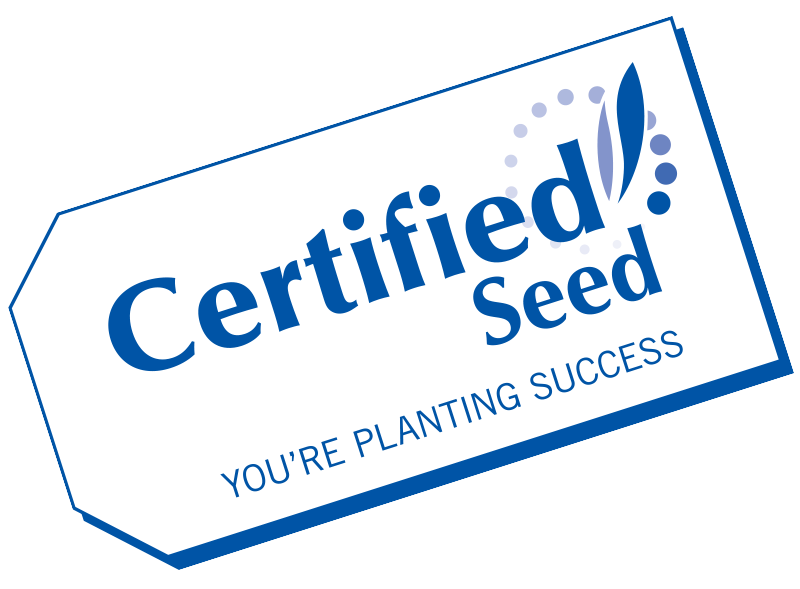What is Canadian Certified Seed?
Certified seed is the product of a production process designed to deliver specific plant breeding achievements to farmers and the food industry. In other words, it is true-to-type. True-to-type means all the benefits developed by the plant breeder are retained as the seed is multiplied over a number of specific number of generations (to the Certified seed stage) from the small amount of seed developed by the plant breeder.
Since 1904, the Canadian Seed Growers’ Association (CSGA) has ensured the supply of high-quality seed in Canada. Its members have been multiplying and producing some of the highest quality seed in the world using a quality assurance identity preserved system that is world renowned.
Certified seed is recognizable by the blue Certified tag of the Canadian Food Inspection Agency (CFIA) that accompanies each sale of seed. This tag means the seed and crop has been inspected by an officially recognized third-party agency, has been produced by dedicated Canadian seed growers according to stringent requirements, has undergone a carefully monitored production process, has passed the quality assurance requirements of varietal purity, germination and freedom from impurities, and is ready for commercial use.
Canada’s seed system is recognized and respected around the globe because it ensures germination and mechanical purity, while providing an third-party verified audit trail of varietal identity. It’s a system that has given Canada its worldwide reputation as a supplier of quality agricultural products, a reputation you can use to guarantee the quality of your own products.
There are three main components to this system:
- Varietal Purity: At each stage of pedigreed seed production, standards for isolation distances, land-use history, maximum levels of off-types, other crop kinds and weeds have been established by the CSGA. These are the rules all seed growers must follow to maintain crop purity. This is especially important to maintain yield, quality, disease resistance and other distinguishing characteristics of the variety.It means seed growers must plan years in advance what crop they will plant where to prevent contamination. It means cleaning seeders and combines between plots and fields, cleaning augers and storage facilities between varieties, as well as weeding and roguing plots and fields to remove off-types and weeds from the pedigreed seed crop
- Germination: Just like the pedigree of a prized animal, the pedigree of a seed crop is documented on paper from the breeding establishment to commercial sale. Documented seed lab test results from seed labs accredited by the CFIA also confirm seed purity and germination of all Certified seed crops.
- Freedom from Impurities: In the field, third-party inspections overseen by the CFIA verifies proper isolation, that the crop was produced from a higher level progeny, and absence of volunteer crops and off-types. In pedigreed seed processing plants, registered by the CFIA, random sampling verifies mechanical purity which is the freedom from weeds and other crop kinds.
Canada’s seed growers produce living seed products under this system and adhere to the CSGA’s and CFIA’s strict standards for quality and purity. Certified seed grown, processed and inspected under this Q&A system is labelled with a blue CFIA Certified seed tag – proof of the product’s integrity and soundness.








